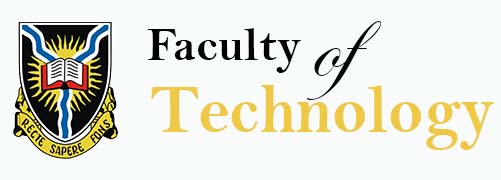Welcome
This programme begins with a broad foundation in Physics, Chemistry and Mathematics. These are followed by courses in the basic aspects of Automotive Engineering - mechanics of solids and fluids, dynamics, mechanical design, thermodynamics, heat transfer etc.
The programme features training experiences in the practical applications of engineering sciences to the solution of problems regarding the manufacture and operation of industrial machines, processes and power production.
Students are prepared for professional positions in design analysis, production of automotivecomponents, and the application of machines, processes, and controls or in research and development as well as for entrepreneural work.
History
The automotive industry is historically known for highly innovative engineering, with various engineering centres of excellence set up by global car manufacturers and suppliers. The main challenge set for these centres is to design, develop and manufacture the next generation of road vehicles capable of providing improved environmental impact whilst maintaining acceptable vehicle performance, reliability and cost. The exciting low carbon vehicle technologies being developed coupled with significant recent growth within the industry, makes for a highly challenging and rewarding career for talented Automotive Engineering graduates.
The automotive industry is leading economic recovery with increased manufacturing output, growing export volumes and new jobs being created on the back of major international investment in the sector. Our engineering expertise, workforce flexibility and renowned motoring heritage, combined with top level collaboration between industry and government, will make the University of Ibadan an important location for the global automotive industry.
Vision
To expand the frontiers of knowledge and transform the society through innovation in Automobile Engineering.
Mission
(i) To provide a scholarly and vibrant learning environment for achieving professional competency.
(ii) To create successful professionals who contribute their knowledge, skill and attitudes to design, re-design, research & development in the automotive industry.
(iii) To make their noteworthy contributions in developing the society through continuous learning-teaching methodology.
Philosophy
Thephilosophyistoproduceautomotiveengineeringgraduateswithhighacademic
standardsandadequatepracticalbackgroundforself-employmentaswellasbeing of
immediatevaluetoindustryandthecommunityingeneral.
Toachievethis, theautomotiveengineeringandtechnologyshouldbegearedtowards:
(i) ThedevelopmentofadequateskillinEngineering.
(ii) EarlybroadbasedtrainingingeneralEngineeringandTechnologyfora developingcountry.
(iii) Production ofgraduateswiththeoreticalandpracticalknowledgewhocandesign andproduceautomotivecomponents and systems.
(iv) Requisitetraininginhumanandorganizationalbehaviour.
(v) Introductiontoentrepreneurialeducationandtraining.
(vi) Exposureofstudents toindustrialpracticeandneedsin automotiveengineering.
Goal
(i) To develop the students to be competent and successful professionals in Automobile Engineering.
(ii) Prepare the graduates to pursue persistent (life long) learning to meet, ethical and career challenges.
(iii) To produce graduates with the solid technical foundation necessary to insure their success in a wide variety of employment opportunities.
Sponsors
The programme is sponsor by National Automotive Design and Development Council (NADDC), a parastatal of the Federal Ministry of Industry, Trade and Investment.
Objectives
The specific objectives of the Automotive Engineering Programme are:
(i) To offer internationally competitive and locally responsive undergraduate training.
(ii) To provide the training needed for our students to be able to function effectively on multi-disciplinary teams.
(iii) To produce graduates with training and skills that will enable them to design and produce automotive components and systems.
(iv)To produce graduates who will be creative and innovative towards improving indigenous technology to enhance local problems solving capability in automotive engineering.
(v) To provide our students with the necessary training and skills to engender entrepreneurial attitude and capability in increasingly competitive and dwindling job market.
(vi)To develop in our students their verbal, oral, written and graphical communication skills and ability to use up-to-date techniques and tools of current Automotive Engineering practice.
- 90 views
